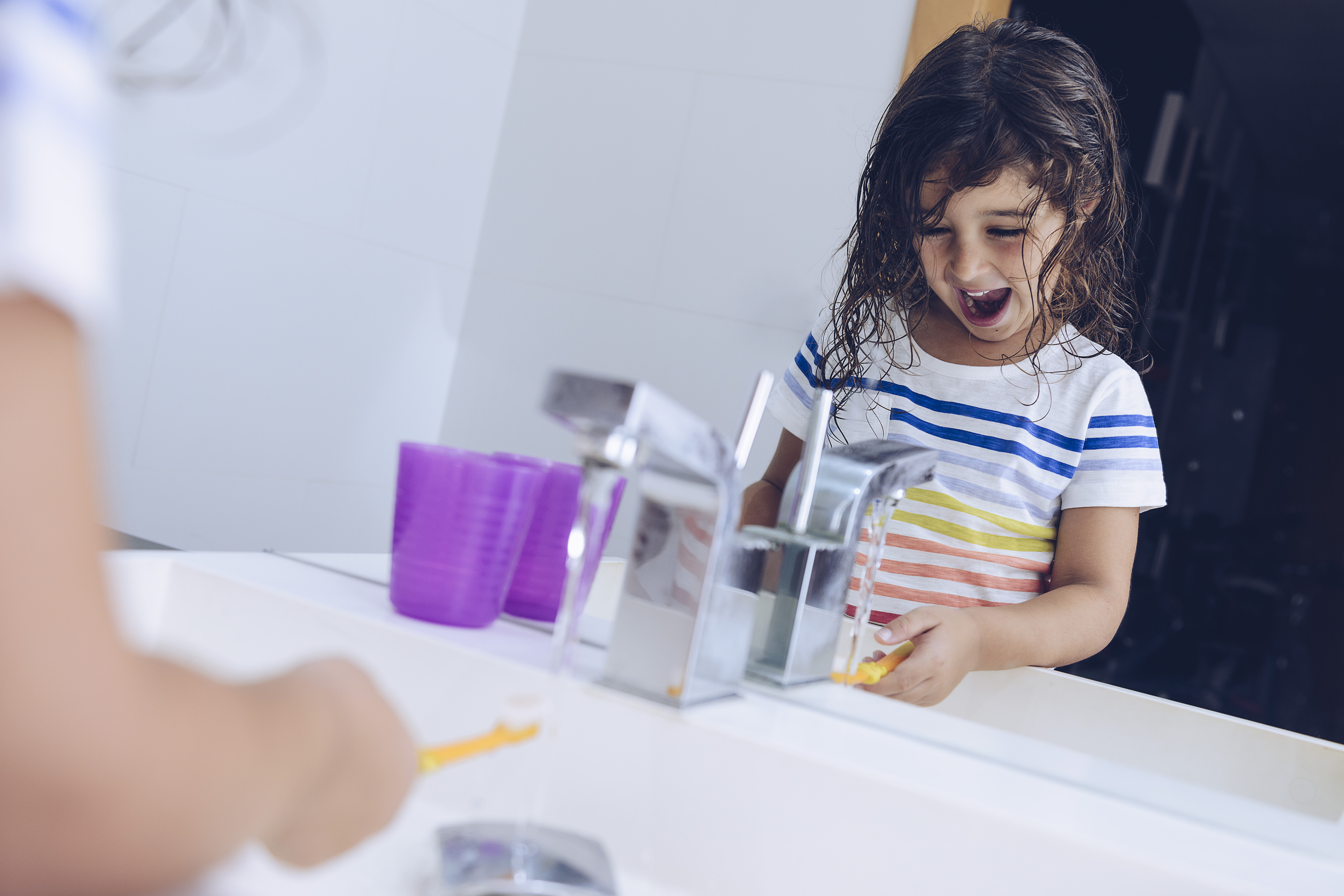Encouraging Age-Appropriate Dental Habits at Home
Proper at-home dental care is an important childhood lesson. Teaching children when they are young helps maintain the healthy habits into adulthood. In deciding what to show them and when, try to go slow. Many kids don’t know how to hold a toothbrush, much less correctly brush or floss without supervision. By teaching age-appropriate skills and staying involved, you make sure that children develop proper techniques over time.
As with any childhood lesson, it isn’t easy knowing when to let kids do it themselves or if you should step in, so here are some of our favorite tips for every age:
Ages 6 and Under
Until they have a firm grip on the toothbrush, keep brushing for them. Explain what you’re doing and why. Eventually, your young child might want to do the brushing themselves but stay close. Kids in this age range don’t have the fine motor skills needed for a thorough job. Young mouths change quickly, so children at 6 will brush the same way they did at 2 or 3 and miss new teeth. It’s up to guardians to help reach those teeth as they pop in. The best course of action is letting your child begin on their own and helping out when needed. For flossing, get them started as soon as two teeth are touching.
Ages 7-12
By now, children know what to do, but they might not want to do it! Many tasks become a battle during this age, so they’ll need active encouragement to take on their brushing and flossing responsibilities and do it correctly. Set a timer to help demonstrate what two minutes of brushing feels like and be aware that you may need to stick around so they don’t cut corners.
Ages 12-18
Research shows that cavities are more likely to appear in early adulthood. That’s because many teenagers go years without a cavity and never grasp the consequences of missing a night of brushing. As a result, their oral hygiene takes a back seat. Don’t let your teen’s habits fall to the wayside. Now that they’re older and their bones weaker, getting cavities is easy. If you notice them slipping, try asking their dentist to remind them of the long-term effects of poor oral hygiene.
The best preventative habit to instill in your children is a twice-yearly visit to the dentist. By maintaining this schedule throughout their lives, it becomes second nature when they go off on their own. Contact us today to schedule their next appointment!



